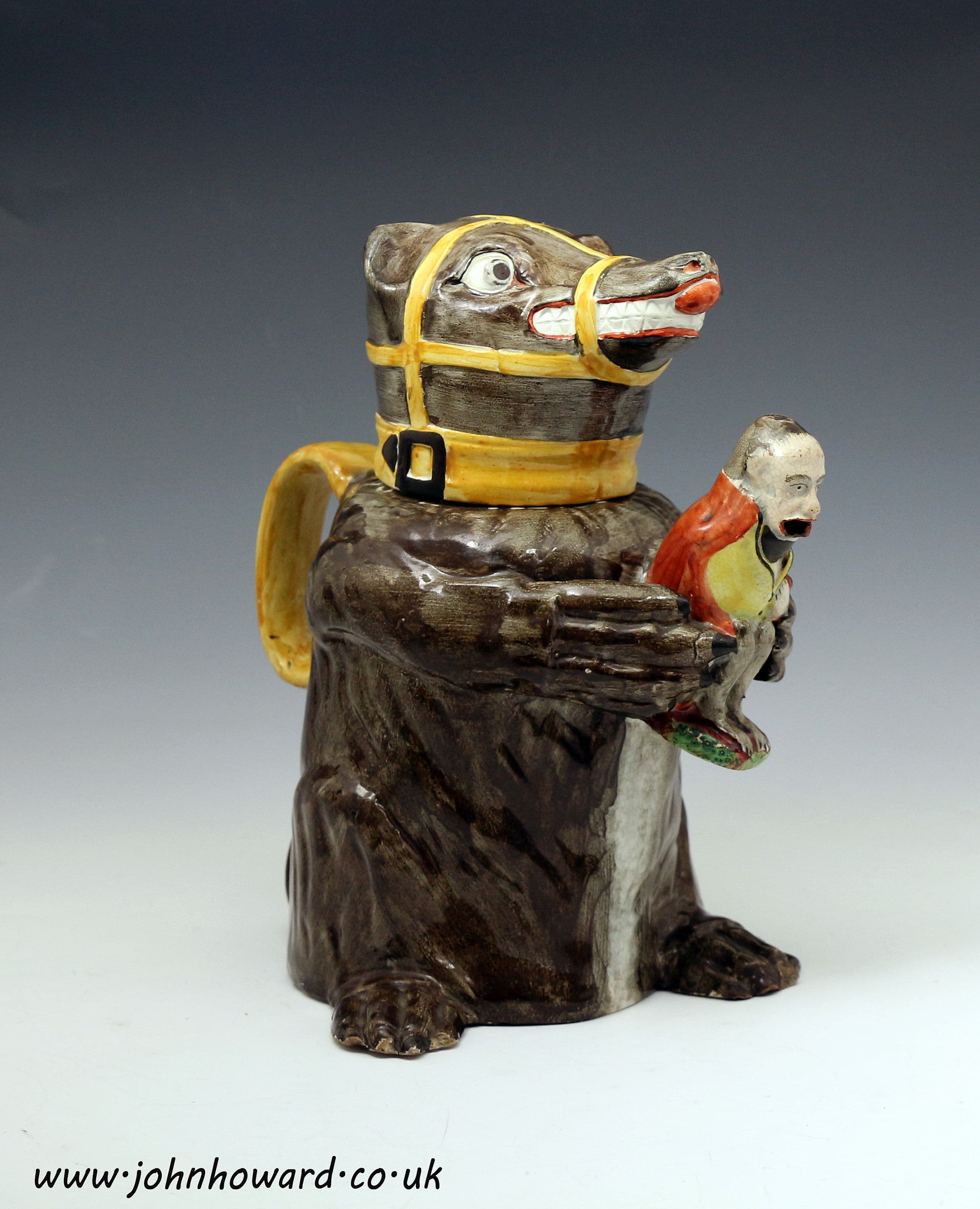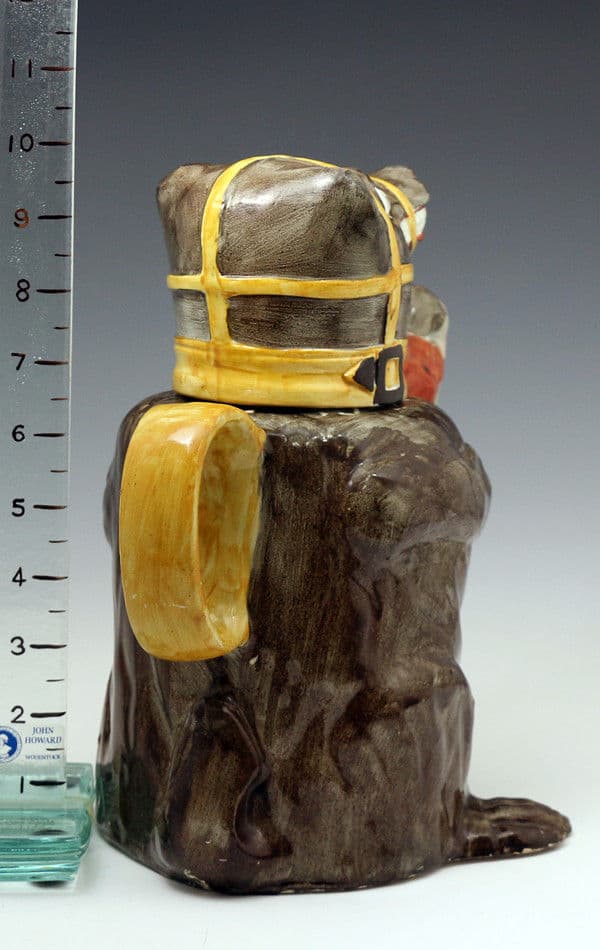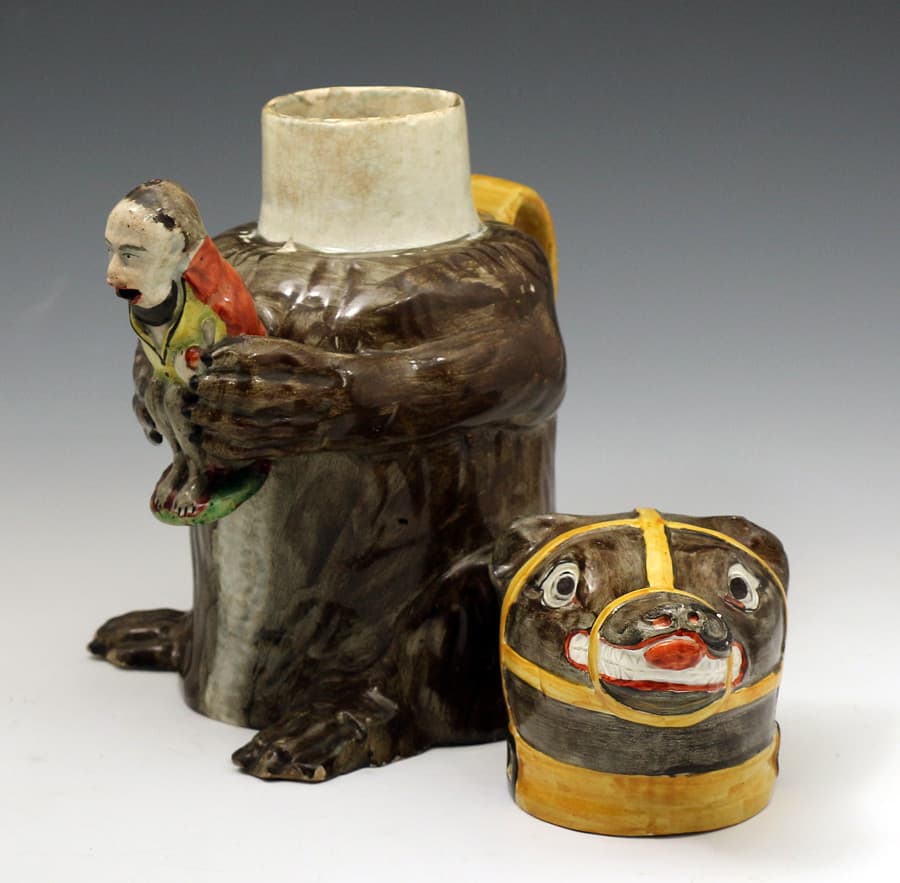Description
A fine and strikingly vibrant Prattware pottery bear jug symbolically and satirically commemorates Napoleon’s defeat by the Russians.
News of Napoleon’s retreat from Moscow with the tattered remnants of his army was welcome news in the United Kingdom.
The jug would be for an alcoholic beverage, with the spout pouring forth through Napoleon’s mouth into the head of the bear used as a cup.
Political correctness was not the fashion of merry England during this period.
Although an enemy, Napoleon was much respected by the British, and interestingly he was one of the most produced figures by the Staffordshire potters in the 19th century.
NOTES;
Napoleon invaded Russia with his army on June 24, 1812. The enormous army, featuring more than 500,000 soldiers and staff, was the most significant European military force ever assembled to that date.
During the opening months of the invasion, Napoleon was forced to contend with a bitter Russian army in perpetual retreat. Refusing to engage Napoleon’s superior army in a full-scale confrontation, the Russians under General Mikhail Kutuzov burned everything behind them as they retreated deeper and deeper into Russia. On September 7, the indecisive Battle of Borodino was fought, in which both sides suffered terrible losses. On September 14, Napoleon arrived in Moscow intending to find supplies but instead found almost the entire population evacuated, and the Russian army retreated again. Early the following day, fires broke across the city set by Russian patriots. After waiting a month for a surrender that never came, Napoleon, faced with the onset of the Russian winter, was forced to order his starving army out of Moscow.
During the disastrous retreat, Napoleon’s army suffered continual harassment from the aggressive and merciless Russian army. Stalked by hunger and the deadly lances of the Cossacks, the decimated army reached the Berezina River late in November but found its route blocked by the Russians. Finally, on November 26, Napoleon forced a way across at Studienka, and when the bulk of his army passed the river three days later, he was forced to burn his makeshift bridges behind him, stranding some 10,000 stragglers on the other side. From there, the retreat became a rout, and on December 8, Napoleon left what remained of his army to return to Paris with a few cohorts. Six days later, the Grande Army finally escaped Russia, losing more than 400,000 men during the disastrous invasion.




